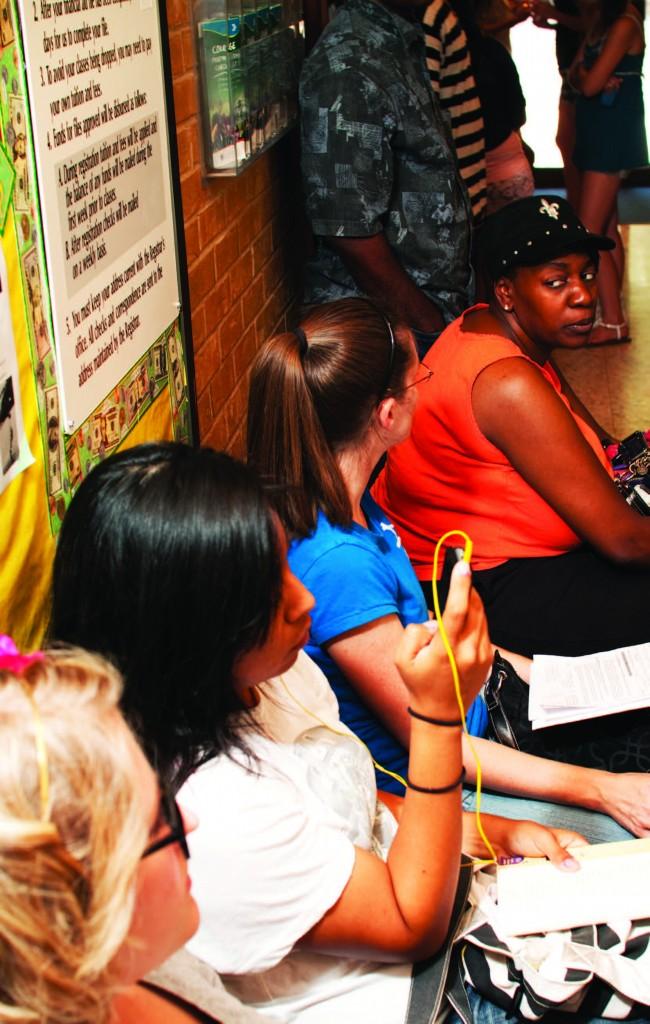By Angela Ortiz/reporter
Starting college for the first time, whether as a recent high school graduate or a mature adult, is a big milestone in life.
Everything that happens in college counts toward the future.
That is why it is so important for students to start off on the right foot.
All new-to-college students must attend a comprehensive introduction to college studies called New Student Group Advisement.
Registration for classes is restricted until NSGA is complete.
Upon admission to TCC, all new students also must take the Accuplacer exam, a state-required placement test in math, reading and writing skills.
The test is offered daily on all TCC campuses. The fee for the test is $29 and must be paid in the Business Services office.
Counseling is the second step after testing. The new student will be assessed and given a student success plan by an advisor.
Advisors create the plan to counsel students in their college careers.
“I love going to see my advisor after every semester. It makes me feel accomplished, and we set up the schedule for the following semester,” said Erin Sellers, a South Campus student.
According to Clifton Dobbins, South Campus counseling director, advisement has changed through the years. Dobbins has been a faculty member at TCC for more than 16 years and has held the position of director for more than two years.
“Advisement used to be all about courses and majors and how to help students,” he said. “We now concentrate on identifying the student’s goal and how to help achieve success in future work or university transfer.”
Ideally, all students would be advised multiple times a semester.
Dobbins suggests a meeting with the same advisor at the beginning, middle and end of every semester.
Along with advising on course curriculum, the students are also educated on the culture of TCC.
“It would be great if all students could come in and see their advisor once a month, but we just do not have the staff and resources for that,” Dobbins said.
All TCC campuses have counseling offices. Advisement is available on a walk-in basis. No advisement is done over the phone at any time.
Advisors can be critical in helping all students use their time wisely and finish the core credits to the best of their abilities. According to the Texas Higher Education Coordinating Board website, each institution’s core curriculum ranges from 42 to 48 credit hours.
“Students should not have a fear of seeing an academic advisor. It is very different from high school in that a student should not wait until they are in trouble academically to come in and see an advisor,” Dobbins said. “Students should come in early to find out all resources available to assist them in their studies.”
























